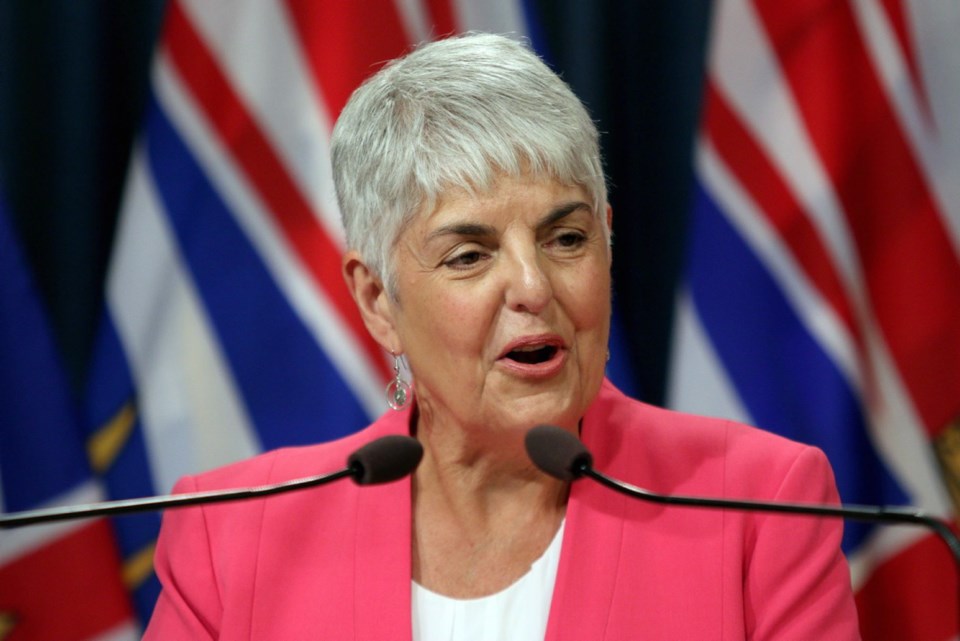‘The time for thinking is gone,” Liberal MLA Marvin Hunt yelled at the government Tuesday in the heat of a legislature battle over condo insurance.
It was a brief respite in a serious argument. You could feel it rocketing up the charts to contend for quote-of-the-session honours as cabinet ministers started laughing.
Finance Minister Carole James cracked: “I think we just heard the slogan for the next campaign.”
His next sentence provided some context: “We need action.”
Specifically, action from the government on the crippling insurance premium hikes some strata housing developments are facing. James begged for time last week when the issue landed on the floor of the house. She still needs time to ponder the issue this week, which is what triggered Hunt.
There aren’t many levers she can pull to drag private sector insurance rates back down. One direct input the provincial government has on strata insurance premiums is a tax that’s applied to them.
It’s 4.4%, charged on the companies, and opposition Liberals accused the NDP government of making a windfall off the skyrocketing premiums that insurance companies are charging some strata councils.
Reading letters from upset condo dwellers, opposition critics said the government will make an extra $15 million this year via the tax, and $75 million more over the next three years.
But even scaling back that tax, or waiving it, as the opposition demands, wouldn’t make much of a difference on some of the horror stories.
The most obvious local one is at Shoal Point residences on Dallas Road, where the premium jumped to $817,000 from $265,000, and the deductible went up to a half-million dollars, from $25,000.
There are a select number of similar stories around B.C. But the Insurance Bureau of Canada said last week that “the cost of strata insurance has risen in B.C. by 35% on average” over the last few months.
Buildings most liable for huge hikes are the bigger, newer, high-end ones, particularly those that have experienced claims.
James ignored the tax option and stressed how complicated the factors are. “Which is why we’ve referred it to the B.C. Finance Services Authority to take a look at regulation.”
That’s an umbrella entity that oversees various sectors, including some aspects of the insurance industry.
Regulating some of the strata premiums down to a more realistic level might be an option, but it would be tricky to execute.
James said the government is consulting widely and looking for a short-term fix that will help condo owners and long-term solutions that will address underlying causes.
“It has everything to do with skyrocketing real estate prices … in the last while. It has to do with the challenges in the insurance industry with some businesses leaving and competition issues. It has to do with climate action.”
She also tried to dole some of the blame out to the Liberals. Strata councils are required to maintain regular depreciation reports, which help schedule and budget for routine maintenance.
The previous government allowed some of those to be deferred. Coasting on maintenance can contribute to insurance claims, and therefore higher premiums.
Elsewhere, one insurance official said the strata insurance segment of the business has sustained regular losses going back several years.
That contributed to the abrupt jump. Also, some companies have scaled back coverage, which lessens competition.
Any short-term measures to ease the tremendous financial hits some residents are taking remain unknown at this point. The one employed by companies is to shrink the coverage dramatically, by imposing skyrocketing increases for deductibles.
But there is some approving talk in many quarters about some long-term measures. Reinstating mandatory regular depreciation reports and putting a new emphasis on regular maintenance. Redesigning and upgrading water safety measures in buildings is another, since most of the claims involve water damage. That would mean detection sensors, flow meters and automatic shut-off valves, either recommended or mandatory.
The government may be able to mitigate some hikes. But making a big immediate difference is hard to picture.



